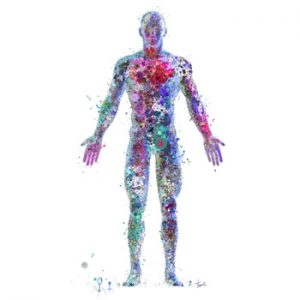
More evidence that low-calorie sweeteners are bad for your health
Studies show that artificial sweeteners can raise the risk of hypertension, metabolic syndrome, type 2 diabetes and heart disease, including stroke.

Of all the subjects in health and medicine, the link between what goes on in our guts and what goes on in the rest of our bodies is arguably one of the most exciting.
Exciting not only because it suggests a more subtle and complex network inside of us – something we are only beginning to see. But exciting, also, because it means that we really can make a difference to our health through what we eat.
This is beautifully illustrated by the recent story of a researcher who spent three days with the Hadza tribe of Tanzania. The Hadza eat a near prehistoric diet and are known to have the richest microbiome – and some of the best health – in the world.
Just a few days of eating the Hadza diet was enough to boost the researcher’s microbiome by 20% – and a few days back on his normal diet was enough to lose that entirely.
Good bacteria, bad bacteria?
The Hadza don’t suffer from the diseases we do in the West, and what is particularly intriguing about that fact is that they also don’t have the same so-called ‘good’ bacteria that we have in our guts (for instance, bifidobacterium) and even have much higher levels of so-called ‘bad’ bacteria which we associate with disease.
An example of this is treponema – which we in the West associate with Crohn’s and IBS, yet the Hadza do not suffer from either disease.
Clearly we still have a lot to learn about how we define ‘good’ and ‘bad’ bacteria.
Emotional connections
Gut bacteria has been shown to have a role in lowering the risk of heart disease, stroke and obesity. But the microbiome’s link to mental and emotional health is still largely beyond our grasp.
Animal research suggests that the makeup of the microbiota, can exert an effect on emotional and social behaviours, such as anxiety and depression.
And while studies show we might be able to treat, or at least mitigate, diseases like ADHD and Parkinson’s through the gut, we are still feeling our way through how this might work.
In one recent study, however, US researchers identified gut microbiota that interact with brain regions associated with mood and behaviour in humans.
The women in this small study were divided into groups according to which type of bacteria – bacteroides or prevotella – predominated in the gut.
The bacteroides group showed greater thickness of the grey matter in the frontal cortex and insula, brain regions involved with complex processing of information. They also had larger volumes of the hippocampus, a region involved in memory processing.
The prevotella group, by contrast, showed more connections between emotional, attentional and sensory brain regions and lower brain volumes in several regions, such as the hippocampus.
The women’s hippocampus was also less active and they experienced higher levels of negative feelings such as anxiety, distress and irritability while viewing negative images than those in the bacteroides group.
Long term effects and quick fixes
Previous animal research has shown that the absence of what we call ‘good’ bacteria in early life – usually obtained through breastfeeding – can have lifelong and potentially irreversible consequences for mood, significantly altering serotonin concentrations in the adult brain.
But some changes can be reversed through diet. In women, for example, replenishing healthy bacteria has been shown to encourage a more stable emotional response when exposed to a stressful situation.
The Western diet which is high on fillers, fats and sugar and low on nutrition takes huge toll on our gut. Some will remember the Morgan Spurlock documentary Supersize Me, in which Spurlock ate McDonald’s food for a month and experienced not just weight gain but, damage to his liver and symptoms of addictive withdrawal when he returned to a healthier diet.
In a more recent experiment an undergraduate student (son of the intrepid scientist who went on the Hadza diet) went on a McDonald’s diet for just ten days. He also experienced a significant drop in the number of beneficial microbes in his gut.
The idea of food as medicine is as old as the hills. What’s new is that it’s not just vitamins, minerals and amino acids that are the star performers. Rather than thinking of ourselves as machines that simply need a different type of fuel, our next level understanding of health will be of the body as an ecosystem, responsive to and affected by many things.
We are the guardians of that ecosystem – as surely as we are guardians of the wider global ecosystem. Perhaps if we learn to balance one, we will might even become more responsible with the other.
Pat Thomas, Editor

Please subscribe me to your newsletter mailing list. I have read the
privacy statement